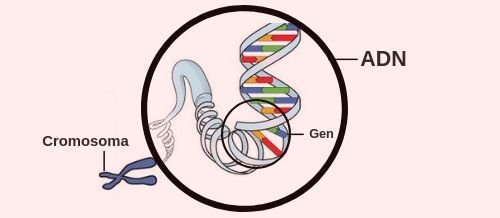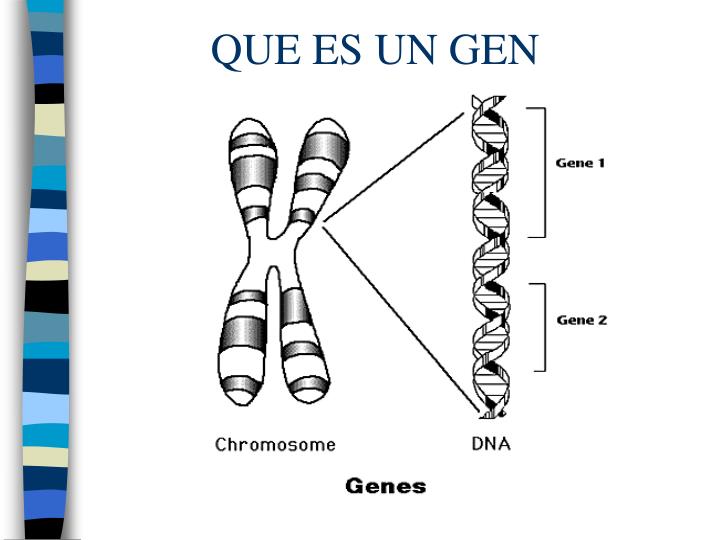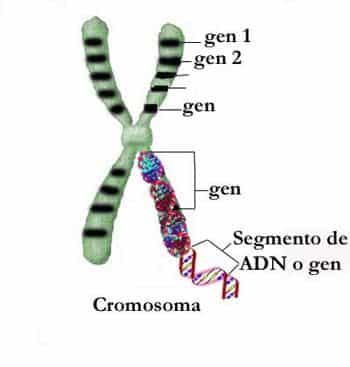Gen Z Funny Email Sign Offs - A Guide
Email, as a way to talk with others, has, like, really changed over time, hasn't it? What used to be a super buttoned-up kind of message exchange is, in a way, becoming something much more relaxed and, well, just a little more human. Young people today, you know, the ones often called Gen Z, are really putting their own spin on things, especially when it comes to how they wrap up their written messages.
It's almost as if the old ways of saying goodbye in an email, like "Sincerely" or "Regards," just don't quite capture the spirit of how folks actually talk. For a lot of younger individuals, those traditional closings feel a bit stiff, or perhaps even a little too formal for many of the day-to-day interactions they have. They are, in fact, finding ways to show a piece of their true selves, even in something as simple as the very last words they type.
This discussion will look at why these creative email sign offs have become popular, what sorts of things make them funny for this particular group, and how one might go about choosing one that fits just right. We will, of course, also consider when it is a good idea to use such a closing and when it might be better to stick with something more conventional. It's really about finding that sweet spot, you see.
Table of Contents
- Why Are Funny Email Sign Offs a Thing?
- What Makes a Sign Off "Gen Z Funny"?
- How Do You Pick a Good Funny Email Sign Off?
- When Should You Use These Kinds of Email Sign Offs?
Why Are Funny Email Sign Offs a Thing?
You might wonder, actually, why anyone would bother with a funny little phrase at the end of an email. Well, for many people who grew up with the internet always around, communication is less about strict rules and more about genuine connection. They often look for ways to make even brief written exchanges feel more like a real conversation. This tendency, in some respects, comes from spending a lot of time on social media platforms where personal expression is, quite simply, the norm.
The younger generation, it seems, tends to bring their whole selves to their interactions, whether those interactions are in person or through a screen. A standard, somewhat formal closing can feel like putting on a mask, so to speak, that hides who they really are. By adding a bit of humor or a touch of their own unique voice to their email sign offs, they are, in a way, making the digital space feel a little more like their own comfortable environment. It’s a small thing, yet it makes a rather big difference in how the message is received.
Also, it's about making an impression, you know? In a world where everyone is sending emails, a slightly unexpected or amusing sign off can make your message stand out from the rest. It’s a subtle nod to the person reading it, a little wink that says, "I'm not just a robot sending out information; I'm a person, and I have a personality." This can, quite honestly, help build a more relaxed relationship with the person on the other end, especially if the relationship is not strictly formal.
The Rise of Unique Sign Offs
The way we communicate has, in fact, been changing for a while now. Texts, instant messages, and social media comments have all taught us to be more concise and, too it's almost, more personal. This shift has, naturally, spilled over into how we handle email. The old ways of writing, with their very strict structures, sometimes feel out of place in a quick back-and-forth about, say, a project update or a casual question. People are looking for ways to make their written words feel more like their spoken ones.
It's also a reflection of a broader cultural trend where authenticity is highly valued. People, particularly younger individuals, want to be seen as real, as genuine, and not just as a corporate drone. A unique email sign off is, in a way, a tiny act of rebellion against the idea that all professional communication must be dry and without any character. It's about saying, "I can be competent and also be myself." This, arguably, makes the work environment a bit more enjoyable for everyone involved.
Consider, for instance, how many online communities operate. People interact with nicknames, emojis, and a generally more relaxed style of language. When these individuals move into more formal settings, they often bring some of those habits with them, adjusting them, of course, to fit the new context. The rise of funny email sign offs is, essentially, a natural extension of this desire to bring a bit of personal flair to every interaction, even those that happen through an inbox. It's a pretty common thing, really, to see this kind of personal touch.
What Makes a Sign Off "Gen Z Funny"?
So, what exactly makes an email sign off funny for someone from Gen Z? It often comes down to a few things: a touch of self-aware humor, a bit of irony, or perhaps a playful jab at the mundane parts of daily life. It’s not about telling a joke, not really, but more about a quick, witty phrase that shows you don't take everything too seriously. For instance, a sign off like "May your coffee be strong and your meetings short" captures that feeling pretty well. It's relatable, and it has a bit of a lighthearted feel.
Sometimes, the humor comes from an unexpected twist on a very common phrase. Instead of "Best," you might see "Worst," but with an implied smirk. Or maybe something that references a popular meme or an inside joke that many people in their age group would recognize. The key is that it feels natural and not forced. If it sounds like you're trying too hard to be funny, it just doesn't quite land right. It has to feel, well, genuinely you, you know?
There's also a sense of shared experience in a lot of this humor. Many funny sign offs play on the common struggles of working or studying, like the endless stream of emails or the desire for the weekend to arrive. When someone sees a sign off that speaks to those shared feelings, it creates an instant connection. It's like a little secret handshake between sender and receiver, a tiny moment of "I get it, too." That, honestly, makes the interaction feel much more human.
Personality and Email Sign Offs
The closing words of an email are, in a way, a small stage for showing off a bit of who you are. For many, especially among younger folks, their personality is something they want to share, even in a somewhat formal setting. A funny email sign off allows them to put a little piece of themselves into every message they send. It’s like wearing a favorite quirky t-shirt instead of a plain white one; it says something about your individual style without needing a lot of words.
It also helps to make the communication feel less transactional and more like an interaction between two people. When you add a bit of humor, it can soften the tone of a message, making it feel less like a demand or a chore and more like a friendly request or a casual update. This can, in fact, make the other person feel more comfortable and open to what you have to say. It's about building a rapport, really, even through something as simple as a closing phrase.
Think about it: if you get an email that ends with "Cheers to not having to send another email today!" it probably makes you smile a little, doesn't it? That small moment of shared amusement can make the sender seem more approachable and more human. It shows that they have a sense of humor and that they don't take themselves too seriously, which are qualities many people find appealing. It’s a very simple way to add a personal touch to your email sign offs.
How Do You Pick a Good Funny Email Sign Off?
Choosing a funny email sign off is, honestly, a bit of an art. The main thing to consider is your audience. Who are you writing to? Is it a close friend, a colleague, or someone you've never met before in a very formal setting? What might be hilarious to your best buddy could be completely inappropriate for, say, a potential new boss. You have to gauge the situation and the relationship you have with the person receiving the message. It's about knowing your boundaries, you know?
Another thing to think about is the message itself. Is the email about something serious, like a problem that needs fixing, or is it a casual check-in? A funny sign off might not be the best choice if the email is delivering bad news or discussing a very sensitive topic. The humor should fit the overall tone of the message. It should, perhaps, add a little lightness, not detract from the importance of what you are saying. It’s a balance, pretty much.
Also, consider your own comfort level. If a particular sign off feels forced or just not like you, then it probably isn't the right one. The best funny email sign offs are those that feel natural and authentic to your own sense of humor. Don't just pick something because you saw someone else use it; choose something that truly reflects your personality. That, actually, makes it much more effective and genuine.
Balancing Professionalism with Humor in Email Sign Offs
Finding the right mix between being professional and being funny is, arguably, the trickiest part when it comes to email sign offs. It's not about throwing all caution to the wind and using whatever silly phrase comes to mind. It’s about being clever and tasteful, even with your humor. For instance, a sign off like "Stay hydrated!" is lighthearted and friendly, but it's not going to offend anyone or make you seem unprofessional in most casual work settings. It's a pretty safe bet, in a way.
The key is to avoid anything that could be misinterpreted, anything that is too sarcastic, or anything that might be seen as disrespectful. What one person finds funny, another might find rude or confusing. When in doubt, it's usually better to err on the side of caution. You can still show your personality without crossing a line. It’s about being smart with your choices, you see, especially in a professional context.
Think of it as a small, personal branding opportunity. Your email sign off is, in some respects, the last thing someone reads from you in that particular message. It leaves a final impression. If you want that impression to be one of someone who is competent but also approachable and a little fun, then a well-chosen funny sign off can help achieve that. It’s about being memorable in a good way, you know, making your email sign offs something people remember fondly.
When Should You Use These Kinds of Email Sign Offs?
Knowing when to deploy a funny email sign off is, actually, just as important as knowing which one to pick. Generally speaking, these are best for internal communications within a team where you have a relaxed culture, or with individuals you've already built a friendly relationship with. If you're emailing a colleague you chat with every day, a playful sign off is probably fine. If you're emailing a new client or a very senior executive for the first time, maybe not so much. It's about reading the room, so to speak.
Consider the industry you work in, too. Some fields, like creative agencies or tech startups, tend to have a more informal communication style where humor is often welcomed. Other fields, such as law or finance, might be much more traditional and expect a very formal tone in all written communications. What works in one place might not work in another, so it's good to be aware of the general expectations of your specific environment. This is, in fact, a very important consideration.
Also, think about the frequency of your communication. If you are sending dozens of emails a day to the same person, a consistent, slightly humorous sign off can become a part of your personal brand within that relationship. If you only email someone once in a blue moon, then a more standard closing might be less surprising and, perhaps, more appropriate. It's about context, really, and how often you connect with people.
The Impact of Creative Email Sign Offs
The effect of a creative email sign off, even a funny one, can be pretty significant. It can, first off, make your messages more memorable. In a sea of emails that all look pretty much the same, a little touch of personality can make yours stand out. This means the person receiving it might remember you or your message a little better, which can be helpful in many situations. It’s a subtle way to leave a lasting mark, you know?
Secondly, it can help build a more positive and relaxed atmosphere in your communications. Humor, when used well, can lighten the mood and make interactions feel less like work and more like a conversation between people. This can lead to better working relationships and, arguably, a more enjoyable day-to-day experience for everyone involved. It fosters a sense of camaraderie, which is, in some respects, a very valuable thing.
Finally, a well-chosen funny email sign off can simply make someone smile. In a world that can sometimes feel a bit heavy, a small moment of amusement can be a welcome thing. It’s a tiny gift, really, from you to the person on the other end of the email, and it can leave them feeling a little bit better about their day. It’s a small gesture, yet it can have a rather big impact on how your email sign offs are perceived.

ADN (ácido desoxirribonucleico): qué es, significado, partes y

PPT - ADN RECOMBINANTE PowerPoint Presentation - ID:5672023

Qué es un gen